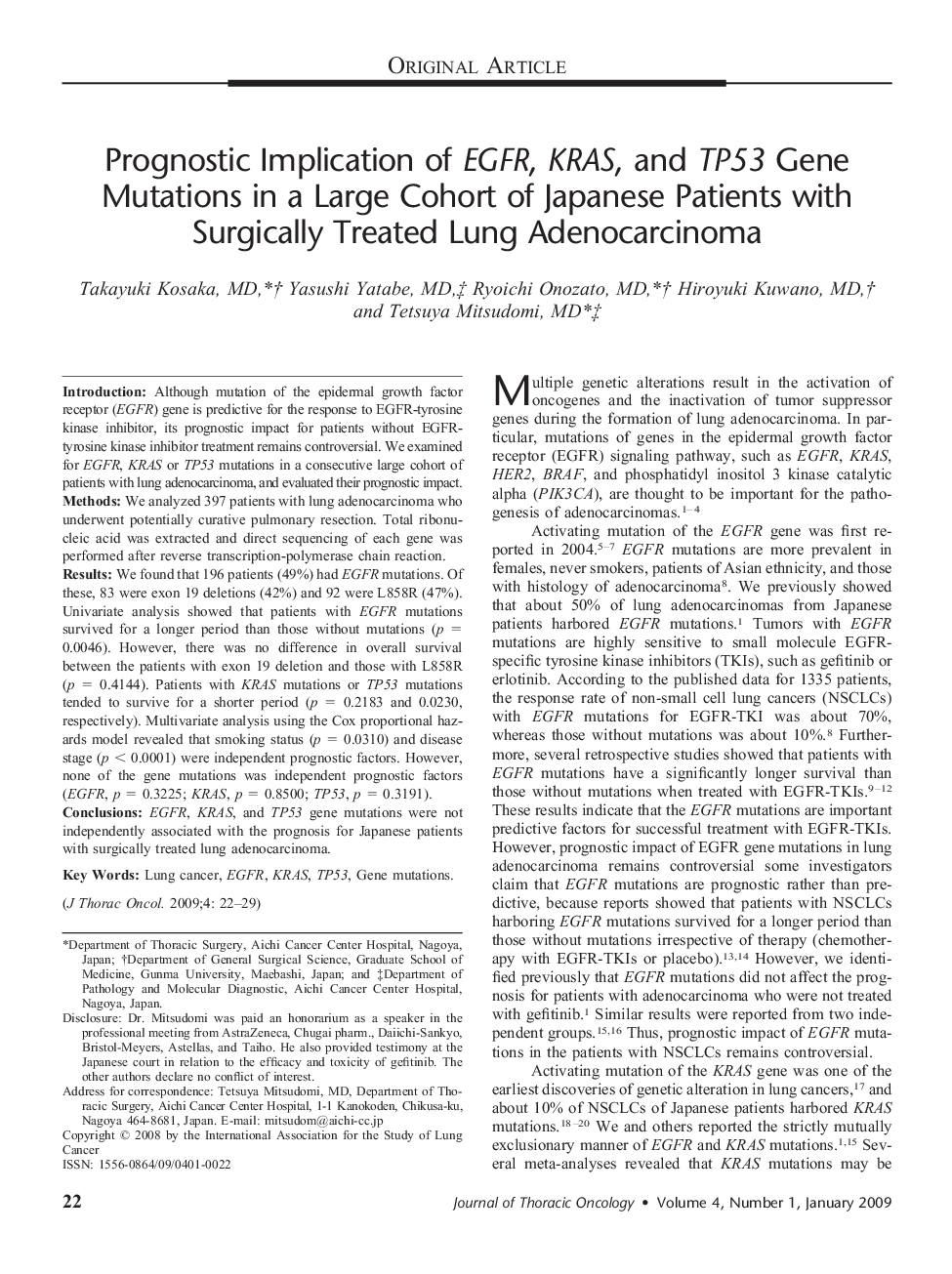| Article ID | Journal | Published Year | Pages | File Type |
|---|---|---|---|---|
| 3992123 | Journal of Thoracic Oncology | 2009 | 8 Pages |
Introduction:Although mutation of the epidermal growth factor receptor (EGFR) gene is predictive for the response to EGFR-tyrosine kinase inhibitor, its prognostic impact for patients without EGFR-tyrosine kinase inhibitor treatment remains controversial. We examined for EGFR, KRAS or TP53 mutations in a consecutive large cohort of patients with lung adenocarcinoma, and evaluated their prognostic impact.Methods:We analyzed 397 patients with lung adenocarcinoma who underwent potentially curative pulmonary resection. Total ribonucleic acid was extracted and direct sequencing of each gene was performed after reverse transcription-polymerase chain reaction.Results:We found that 196 patients (49%) had EGFR mutations. Of these, 83 were exon 19 deletions (42%) and 92 were L858R (47%). Univariate analysis showed that patients with EGFR mutations survived for a longer period than those without mutations (p = 0.0046). However, there was no difference in overall survival between the patients with exon 19 deletion and those with L858R (p = 0.4144). Patients with KRAS mutations or TP53 mutations tended to survive for a shorter period (p = 0.2183 and 0.0230, respectively). Multivariate analysis using the Cox proportional hazards model revealed that smoking status (p = 0.0310) and disease stage (p < 0.0001) were independent prognostic factors. However, none of the gene mutations was independent prognostic factors (EGFR, p = 0.3225; KRAS, p = 0.8500; TP53, p = 0.3191).Conclusions:EGFR, KRAS, and TP53 gene mutations were not independently associated with the prognosis for Japanese patients with surgically treated lung adenocarcinoma.
